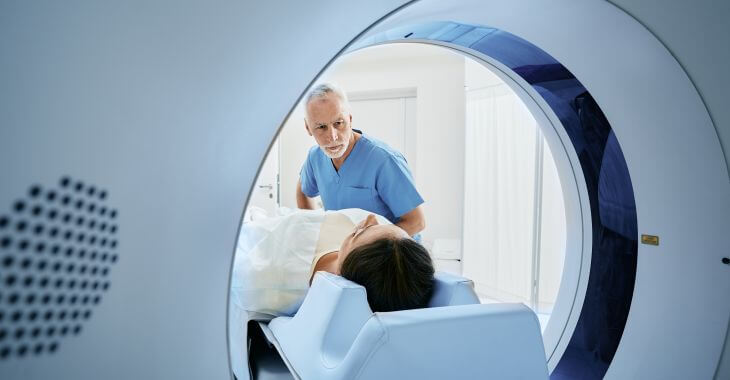Who Is at High Risk of Osteoporosis?
Osteoporosis is a silent disease that can strike people of almost any age, gender or ethnicity. This disease weakens the bones to the point where fractures can be caused by normal activities, causing pain and disability. While no one is immune to the possibility of osteoporosis, there are people who are at higher risk for this disease. Since there are no symptoms to warn people they have this disease until they begin suffering fractures, it is important to know the risk factors and how they can be tested for bone loss. Some of the people that are at a high risk for osteoporosis include:
- Genetic factors. If you have a family history of osteoporosis, you are at risk for this disease. There is a correlation with genetic factors that can put you at higher risk.
- While both men and women can get osteoporosis, it is more prevalent in women versus men. Women are four times as likely than men to get the disease.
- If you have had one bone fracture, you are more likely to be at risk for osteoporosis and have additional fractures.
- Osteoporosis does not happen overnight and can progress over the years. Most people diagnosed with osteoporosis are older, with women above 50 years of age being the highest risk group.
- Lifestyle and medications. Certain drugs and vices can put you at higher risk for osteoporosis, including some prescription medications, alcohol and smoking.
If you are in a high risk group for osteoporosis, you should discuss being tested for this disease with your doctor. Your physician may order a bone density scan to determine if there is any mineral or bone loss occurring. This is a painless procedure that can be completed at a local radiology clinic and can help determine whether you have osteoporosis so you can begin treatment if necessary.
Posted on behalf of:
Diagnostic Radiology Ultrasound & Breast Center, P.C.
Mount Vernon Medical Center
755 Mount Vernon Highway Northeast #310
Atlanta, GA 30328
(404) 252-3430
The information provided on this website, including text, graphics, images, and other materials, is intended solely for informational purposes and should not be used as a substitute for professional medical advice, diagnosis, or treatment.

)